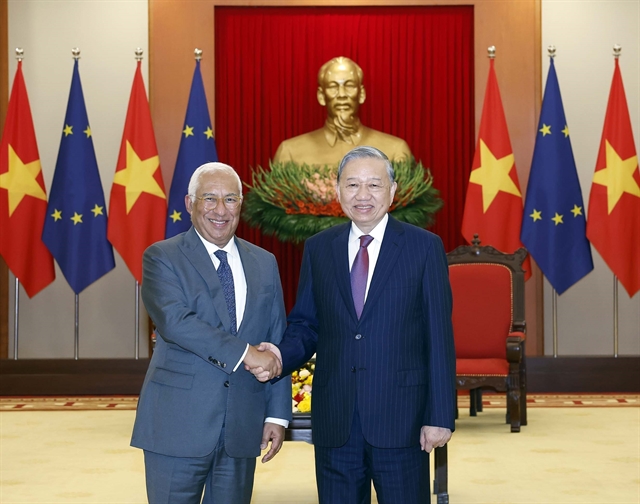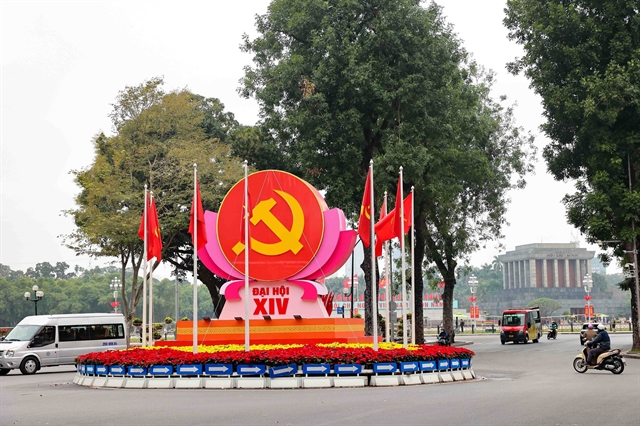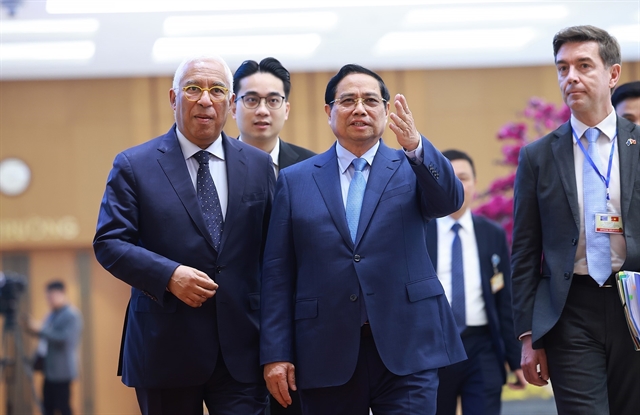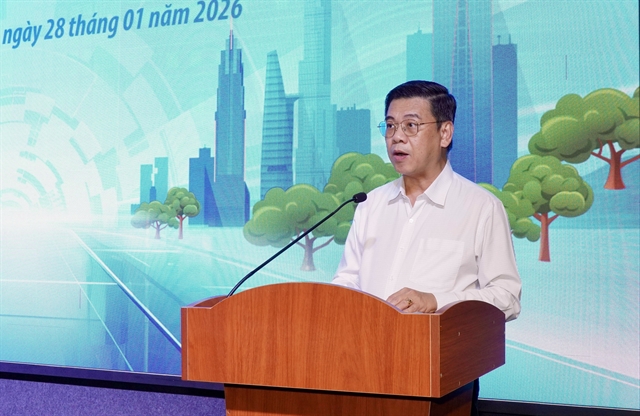 Society
Society
.jpg)
Việt Nam needs a strategy on renewable energy development to ensure energy safety in the context of the country’s rapid economic growth and global climate change, said energy experts.
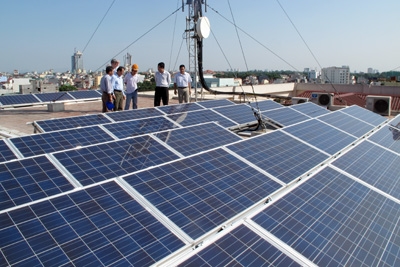 |
Việt Nam needs a strategy on renewable energy development to ensure energy safety in the context of the country’s rapid economic growth and global climate change, said energy experts. – Photo nhandan.com.vn |
HÀ NỘI – Việt Nam needs a strategy on renewable energy development to ensure energy safety in the context of the country’s rapid economic growth and global climate change, said energy experts.
The economic growth rate, high demand of energy consumption, and world hike in the price of fuel have all caused challenges to the country’s energy security.
In fact, Việt Nam has a great potential for developing clean energy sources but the current investment in the field has still been modest.
According to the Energy General Department, Viet Nam was endowed with excellent renewable energy resources throughout the country.
The country has about 2,000-2,500 sunny hours a year, equivalent to 43.9 million tonnes of oil, while the geographic orientation with approximately 3,400km of coastline, provides abundant wind energy at an estimated potential of 800-1,400kW per sq.m. per year.
Phạm Trọng Thức, director general of the General Department of Energy’s New and Renewable Energy Office, said at a recent international conference that “Clean energy development was one of many feasible solutions to address energy demand, security and environmental protection. It can also achieve objectives for rural electrification.”
However, as of late 2013, renewable energy sources accounted for just 6.3 per cent of the total power generation capacity. Clean energy sources only have a capacity of about 4,000MW, of which small-scale hydro-power plans accounted for 3,800MW, wind power 52MW, and other sources about 170MW.
So far, solar power has only been applied to hot water equipment, the department said.
Government statistics show that Việt Nam will have to import coal for power generation. Thus, exploitation of renewable energy sources was very important to ensure energy security and sustainable development as well.
However, there were many hurdles preventing investors from pouring their money into the renewable energy field including low profits, lack of incentive policies, and a low level of applying advanced technology.
Dr. Trần Quang Minh, head of North-East Asia Institute, said “The Government should build up and issue a national energy strategy and policy which will create a legal framework as well as co-operation among ministries, sectors and localities to develop the energy sources.”
“The strategy should include mid- and long-term plans with concrete targets for the country’s specific socio-economic development period,” said Minh.
“Projects on renewable energy development should be regarded as a top priority mission of technological and scientific studies,” he added.
To accelerate clean energy development, it needed technical and financial assistance from international donors and proper investment into scientifically investigating and evaluating its potential and how to apply advanced technologies.
At present, private investment in the field was still modest. The Government should make renewable clean-energy development a priority with tax exemptions on imported equipment for non-manufactured use domestically, and exemptions and reduction of land-use tariffs and environmental-protection tariffs.
Other priorities include the enterprise income-tax exemption for the first four years of business operation and a 50 per cent tax-reduction for the following eight years, and that EVN would purchase all the energy output from renewable sources, Thức said. -- VNS
In box
New measures to green fast-growing aviation.
Việt Nam’s civil aviation sector was called on to introduce new measures to meet the global goal of carbon neutral growth in aviation by 2020, including mobilizing finance for the greening of the industry.
“With upwards of 35 million passengers a year, a small ‘green’ fee applied to every passenger ticket would generate a new source of targeted revenue to green the industry while sustaining its competitiveness,” said Bakhodir Burkhanov, deputy country director of the UNDP.
“These funds can help co-finance, for example, the conversion to electric vehicles in all airport operations across the country, the scale-up of energy efficient technology in all airports, and the introduction of renewable energy to power the growing number of airports.”
With year-on-year growth of 14 per cent, Việt Nam’s civil aviation sector is one of the fastest growing in the world.
The aviation sector has been a key driver of Việt Nam’s overall economic progress. But rapid growth of the industry puts in jeopardy the achievements of country’s target to reduce its national CO2 emissions.
It is therefore critical to build a competitive, environmentally-responsible industry committed to addressing the climate change challenges of the 21st century. -- VNS
.jpg)
